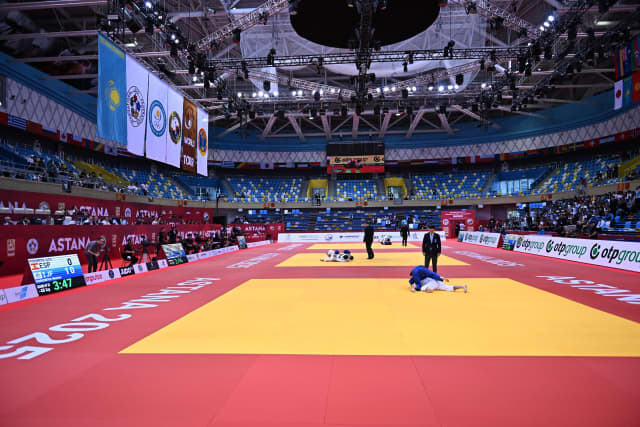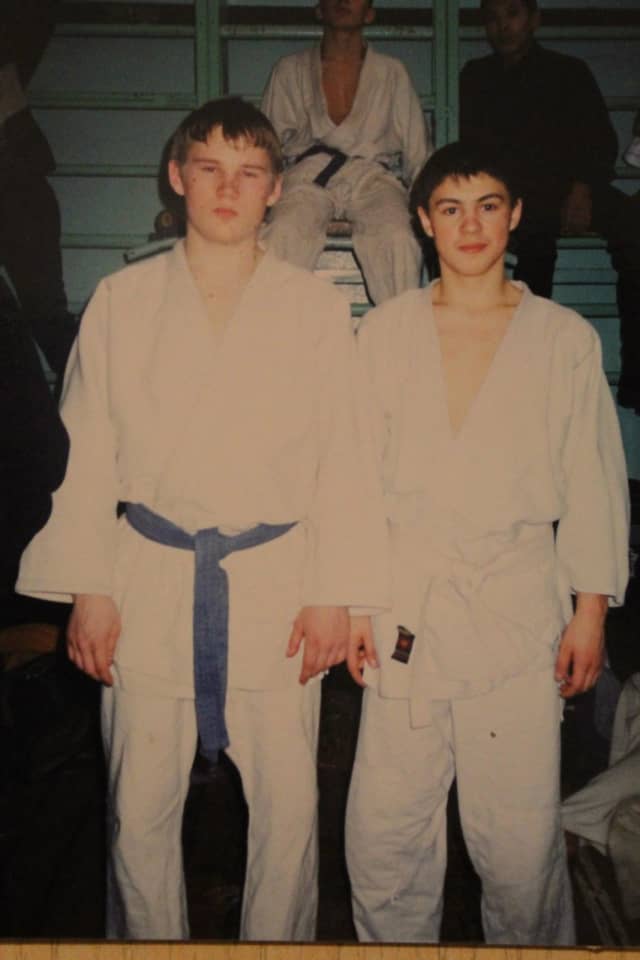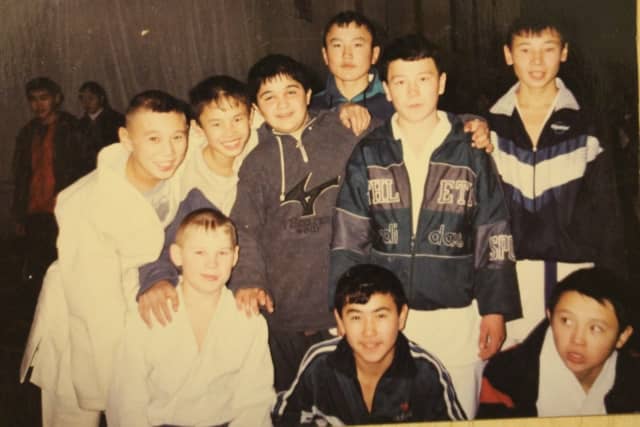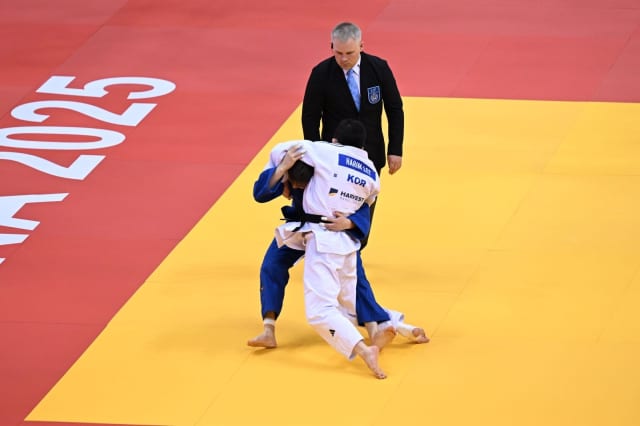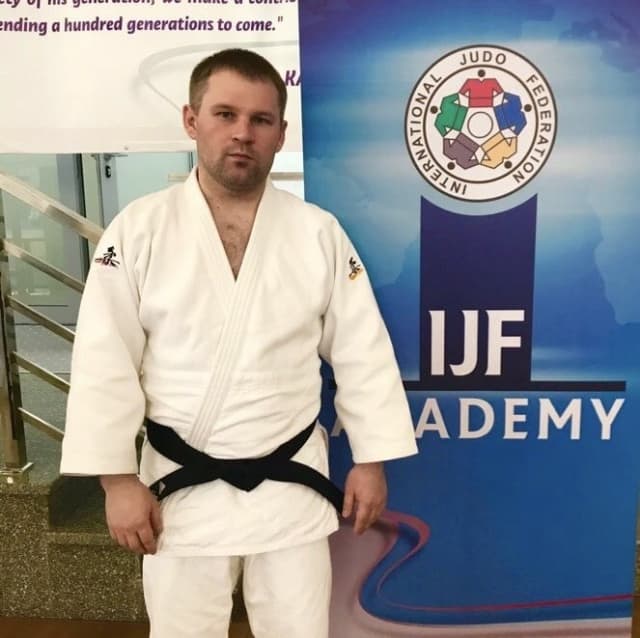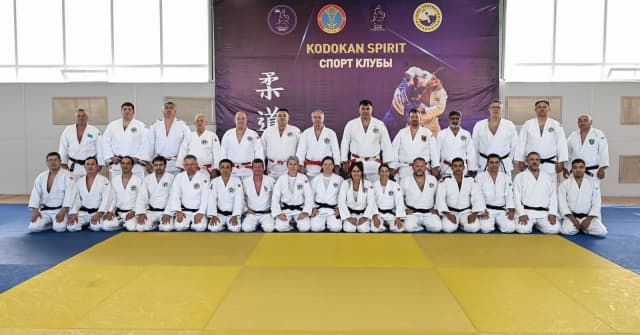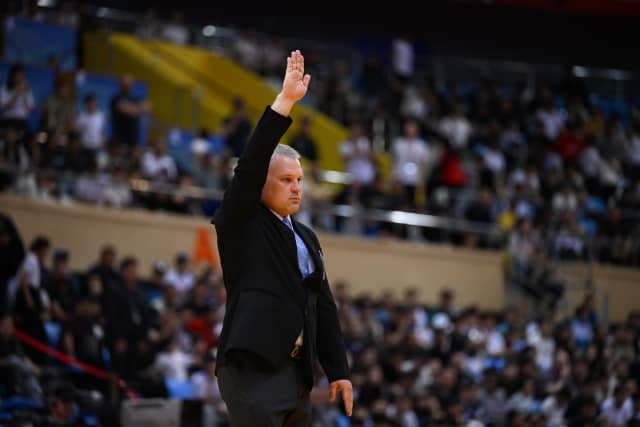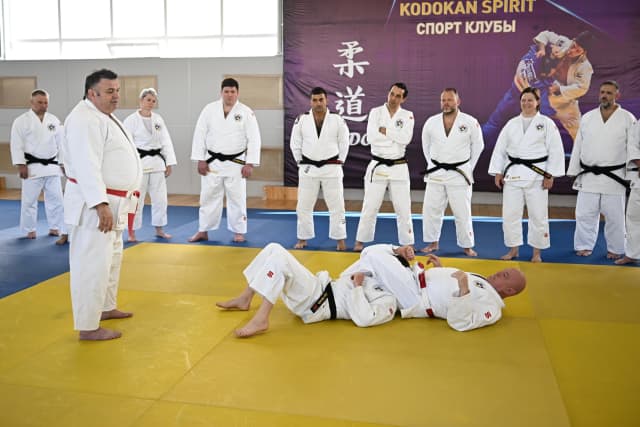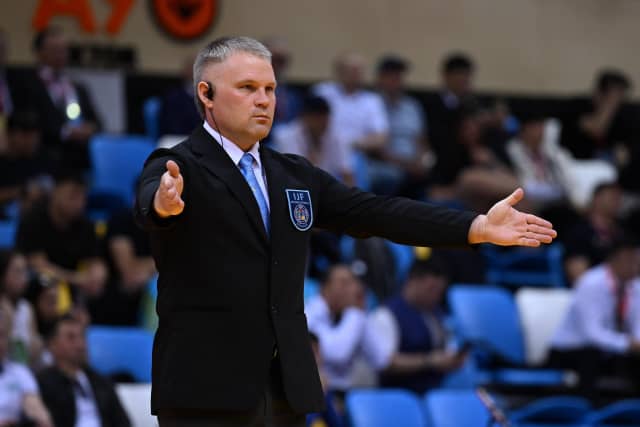There is no doubt that the first time a referee officiates at a grand slam or at a milestone event, there are nerves, there is a serious amount of introspection and of course there is also external scrutiny. It takes a certain character to withstand the pressures and the doubts but anyone who can is ready for the next stage of learning and perhaps the chance to go all the way to the Olympic Games, the ultimate goal for a referee just as it is for an athlete.
Denis Amelin (KAZ) has just begun this chapter of his story, refereeing at home, but also on the World Judo Tour for the first time. “I started judo when I was 12. My first experience was when I came to a swimming pool and the man who later became my judo coach was at the pool. He invited me to come to judo and the next day I went and I never left. I come from Pavlodar city in the north of Kazakhstan, near the border, 400km from Astana, although we lived in the countryside for some years. My mother died when I was 7 and my father when I was ten so my older cousin took care of us, me and my two siblings."
"After the break up of the Soviet Union there was a really tough ten years for everyone, economically. 1990 to 2000 was really difficult. I liked the discipline and consistency I had in judo; I know not everyone is like this. I knew I had to be strong from then on, with my family situation and with the political situation. With these difficult times, my answer was to be more disciplined. My cousin couldn’t watch us 24 hours a day as she had to work so it was necessary for me to go to school and to the dojo and to be disciplined with everything. I made new judo friends and always spent time in the dojo. I think it was a form of security and stability for me.
When I was around 15, our region opened a sport school and I passed the entry exams. In high school I had my first experience of refereeing, at a small competition between clubs. That was when I first understood how different our mentality must be for different aspects of judo. When you are athlete you just think about how to win, our preparation, our techniques, but as a referee I must see the whole picture, the whole of both athletes and must use the rules correctly. I realised straight away that it was not easy, especially with everyone watching, creating pressure. You must be honest at all times."
"I went to university in 2002 to study physical education and sport and also continued to earn a Masters degree. All the time I continued refereeing and found that my learning for refereeing helped with other areas of life. In 2013 I passed the national referee examination. That was the first step towards a new part of my refereeing life. After 3 more years I was nominated for the continental exam, in 2016. It was amazing! It took a long 6 years after that to come to the international level. I needed a lot of practice and so I travelled to all continents to see and learn from as many different judo environments as possible. At each event I feel I improved from the last."
"In the Kazakhstan Judo Federation we have great mentor, Mukhsin Nurtazin. He was twice an Olympic referee and he is the referee director for our country. We also have many experts in the JUA who give advice and opportunities to help us understand judo at a high level. Our IJF Head Referee Directors are also like this, always giving feedback, it’s constant and in this way we learn. Since 2014 I have also attending seminars all around the world, in Abu Dhabi, Austria, Hungary, many places. Then in 2019 a new IJF Academy branch opened in Kazakhstan and this gave us an incredible opportunity."
"It’s important to love it, always learning, working hard to keep making progress. I think that when we stop learning, our judo journey is finished. All athletes, coaches and referees must develop constantly. I love judo and I love refereeing and I believe that if I want to develop, I must invest in it. It’s my goal and I must go searching for ways to move forward. I can’t expect others to support it for me. I planned my refereeing career and I start each year with the IJF, EJU and JUA calendars, building the best programme for me to learn. Yes it’s been expensive for me to do this but my wife, she’s an incredible woman, she supports all my dreams. We met at university in our city but she has also studied in Canada and while there she started to learn judo for the first time. She wanted to understand my life and so she worked and trained and earned her yellow belt. Really, her support and understanding has been key and I am very grateful to her for this.
Me and my brother have now opened our own sport school for several sports, including judo, and our school helps to fund my refereeing activity. I used to feel bad for paying so much money, which could be used for my family, but my wife says I must do it in order to follow my goals.
Many federations don’t give chances to referees but Kazakhstan always gave me opportunities, advice and the chance to achieve my goals. I appreciate the support I’ve had. It’s not always about financial support; I’m happy to invest in myself. The moral support is essential too as this pathway is very difficult.
Life is short, really not long at all. A refereeing life is even shorter with our border of 50 years, after which we cannot go to the very top anymore. I talk to many referees who waited for ten years or more after their international examination before they were invited to the World Judo Tour. I passed the exam in 2022 and I have this huge chance by coming to the World Judo Tour already, just 3 years later. My age was possibly against me and I took the chance to stay and to try. At 41, now I have two Olympic cycles to reach my big dream before my age excludes me. It’s a long way away but I’m ready to continue my hard work."
In life, sometimes we have money, maybe tomorrow we don’t, but knowledge stays for all your life. I can collect and pass on knowledge. I can help with judo education in my region and around the country and this is what is important. Experience, knowledge, learning and sharing will always be my priority over material things.”
For Denis Amelin there is no guarantee for what comes next but his life so far indicates that there is a different guarantee, that he will work and learn and move forward, no matter what, in the spirit of judo and with education always at the top of his priority list."

